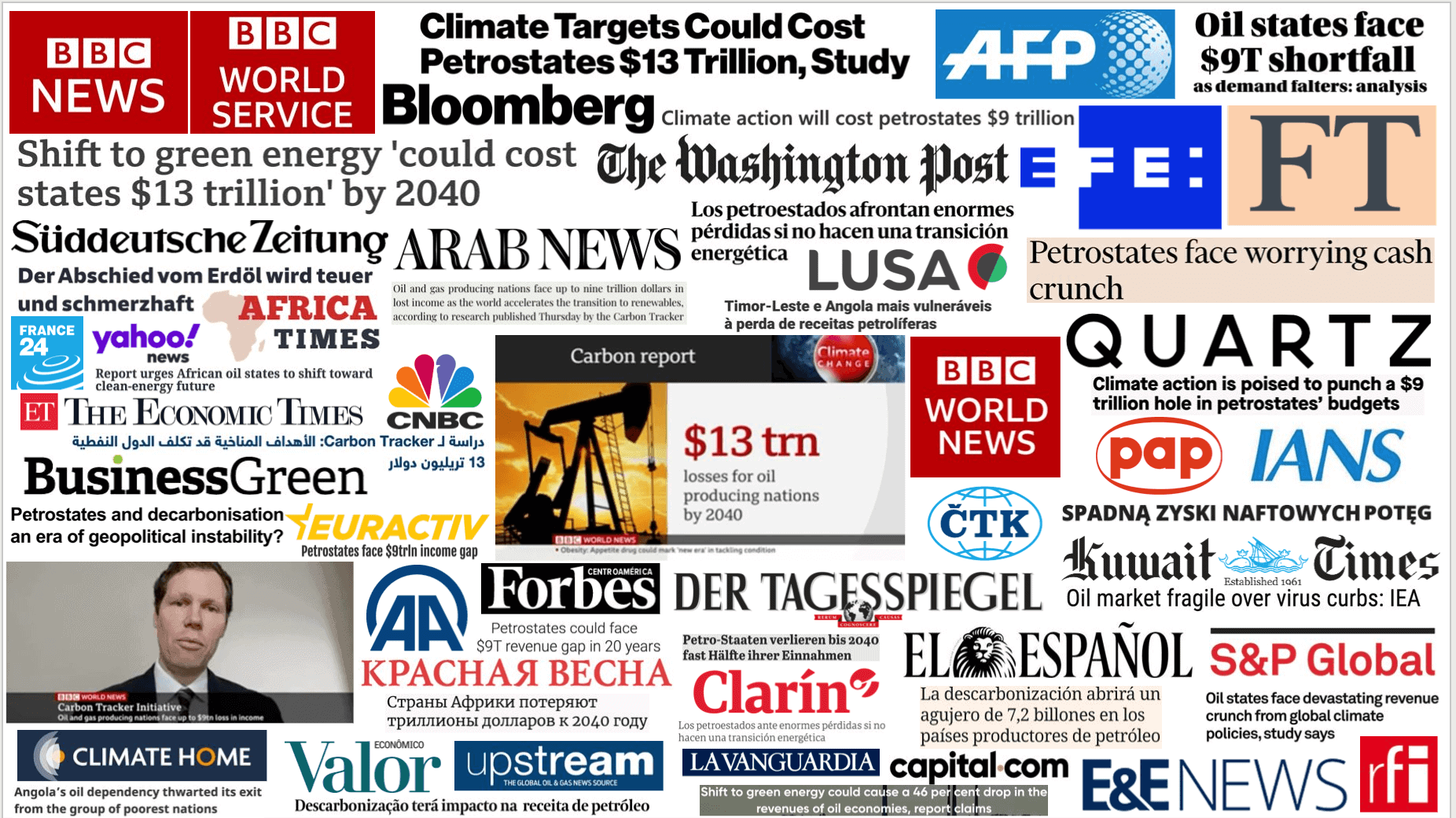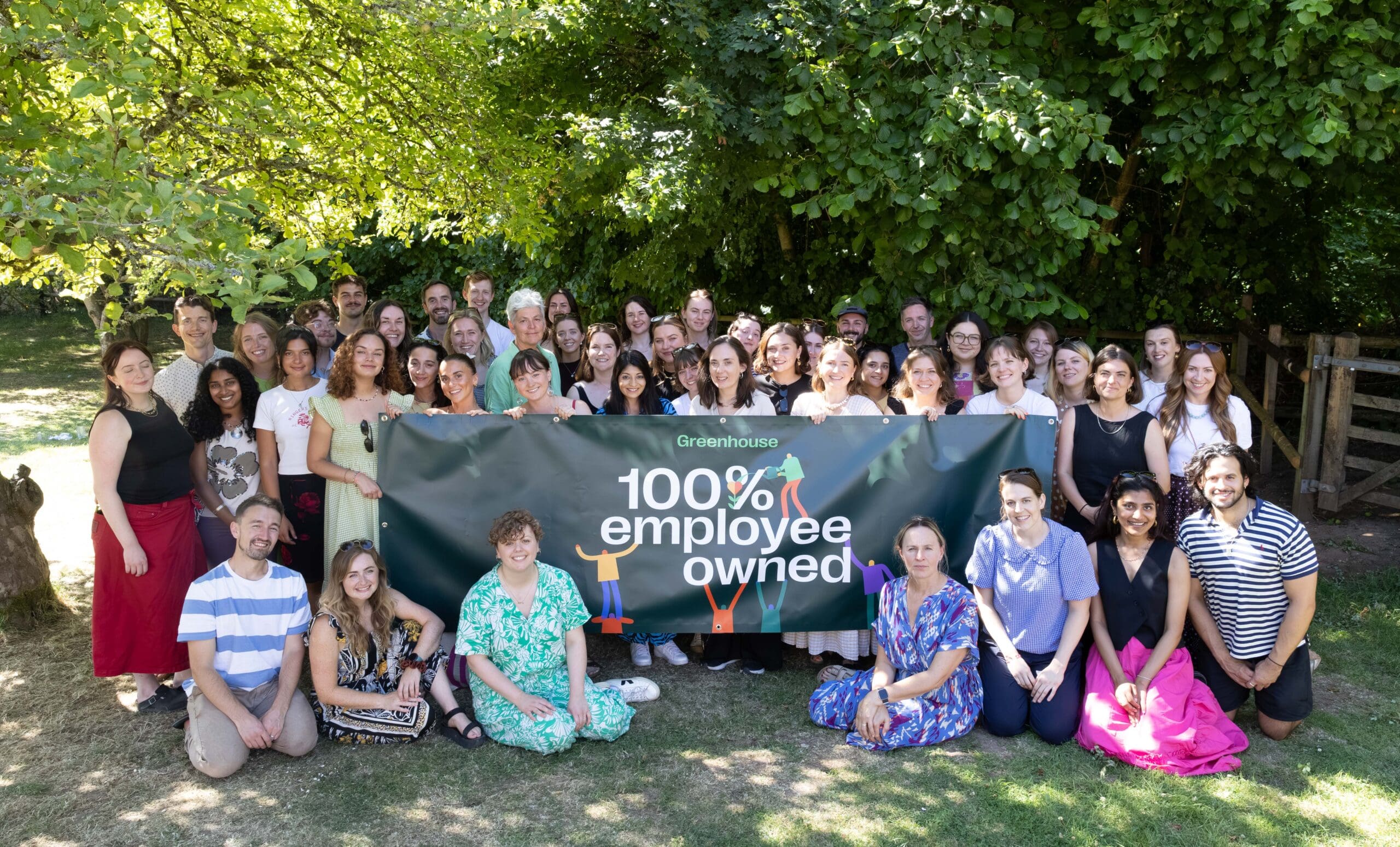Oil producing countries risk $13 TRILLION of losses – unless they act now

A shocking new report by UK think-tank Carbon Tracker has revealed that oil and gas producing countries could lose $13 trillion in government revenues over the next 20 years, as fossil fuel prices and demand plummet to new lows.
If global action against climate change manages to limit temperature rise to 1.65°C, then the world’s ‘petrostates’ – the biggest oil and gas producers, including Nigeria, Iraq and Angola – could see government revenues fall by almost 50% by 2040. It’s difficult to comprehend the size of these numbers, but that is the scale of the challenge we face in supporting global decarbonisation efforts.
So, what can be done about it? Not only will the biggest petrostates start diversifying their economies immediately away from fossil fuels – but the international community must rally to support them. Climate finance, the report says, will be crucial in providing the economic support that petrostates will need to stay afloat.
In this blog, we take a closer look at the report’s findings, but also shed a light on some of the recommendations for both oil producing countries and the broader international community. These will help the most vulnerable countries take the necessary steps to avoid the worst case scenario.
5 key findings
- All oil producing countries risk collectively losing $13 trillion by 2040, 51% lower than the industry’s expectations.
- In particular, the 40 petrostates analysed in the report would face a hole of $9 trillion in government income over the next two decades if global temperature rise is kept to 1.65°C.
- 400 million people live in the 19 most vulnerable petrostates. According to the UN, ,ten of these countries are currently categorised as having “low human development”. All 19 countries could see total government income fall by at least 20% leading to cuts in public services and job losses.
- Petrostates already have high levels of debt but their financial positions vary regionally, as well as their ability to respond to these changes in their economies.
- The most vulnerable countries face an overall potential revenue shortfall of over 40%, including Angola, Azerbaijan and Bahrain.
“It’s in the interest of all nations to minimise global temperature rise and this means rapidly reducing our use of fossil fuels. But many countries are heavily reliant on oil revenues – the time to act on rebalancing their economies is now. Waiting for demand to fall will be leaving it far too late.” – Report author Mike Coffin, senior analyst in oil, gas and mining at Carbon Tracker.
So what now?
Many petrostates are already adopting measures to try to bridge the expected hole in their finances by introducing value-added taxes, reducing subsidies or investing in industries like renewables and tourism.
However, the scale of the challenge is huge. This report is a wake-up call for petrostates and policymakers to act now and respond proactively to the challenge.
But how?
- Oil producing countries should create economic diversification programmes that change fiscal structures and invest in new industries that are more resilient to the energy transition.
- The international community can help the most vulnerable countries (tier 5 in the graphic below) and ease the burden of the energy transition by:
- Providing assistance for regulatory fiscal reforms.
- Supporting the development of new technologies.
- Providing capital for alternative industries.

Media splash
The Greenhouse team supported the launch of the report through international media outreach. The team effort secured more than 600 pieces of coverage, including BBC, Bloomberg, FT, AFP, EFE, Süddeutsche Zeitung, and El Español.

The onus is now on fossil fuel dependent countries to immediately start diversifying their economies – and on wealthy nations to provide the necessary climate finance and technical support to accelerate the process and make it happen.
You can read the full report here – if you’d like to find out more, follow the Carbon Tracker team on Twitter, LinkedIn and Facebook.
Greenhouse PR works with organisations and leaders who are pioneering climate action. Whether it’s food, fashion, finance or farming, if you’ve got a great story and need our help to tell it, get in touch with the Greenhouse team on 0117 214 1250 or email info@greenhousepr.co.uk.


